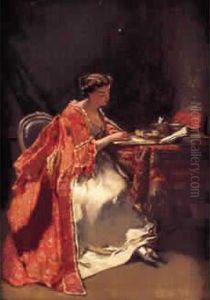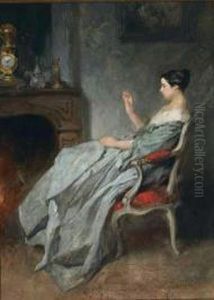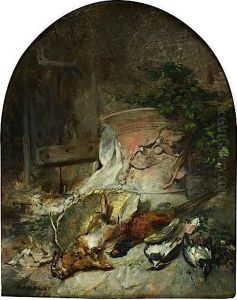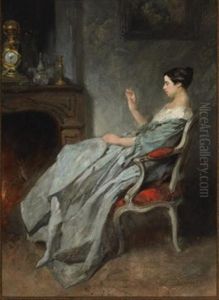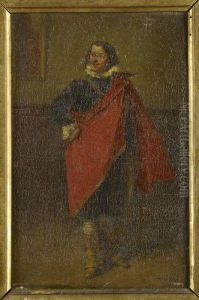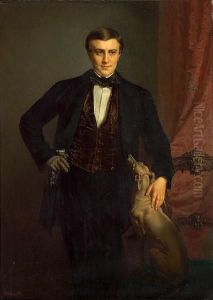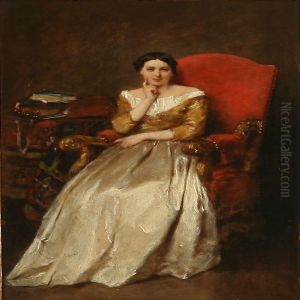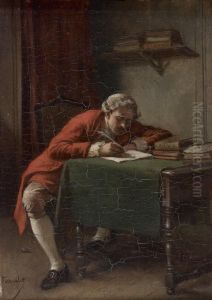Jean-Baptiste Fauvelet Paintings
Jean-Baptiste Fauvelet, also known as Jean-Baptiste Fauvelet Bourrienne, was a French artist who was born in 1819. Although not as widely recognized as some of his contemporaries, Fauvelet made contributions to the art world during the 19th century, primarily as an engraver and lithographer.
Fauvelet was trained in the arts and developed a fine skill in engraving, which allowed him to reproduce works of art as well as create original compositions. During his career, he created engravings after the works of several notable artists, allowing for their wider dissemination and appreciation. His work included portraits, landscapes, and historical scenes, reflecting the varied interests and styles of the period.
Despite the limited information on his personal life and career trajectory, Jean-Baptiste Fauvelet's engravings were well-regarded by his peers. He participated in the artistic life of France and was likely involved in the Salon, the official art exhibition of the Académie des Beaux-Arts in Paris. His engravings, which often involved a complex process of etching onto metal plates, were then inked and pressed onto paper, making the artworks accessible to a broader audience.
Jean-Baptiste Fauvelet passed away in 1883. Although he did not gain the same level of fame as some of the leading artists of his time, his work remains a testament to the skill and craftsmanship of 19th-century French engravers. Today, his engravings are valuable to art historians and collectors who are interested in the printmaking techniques and artistic expressions of that era.
